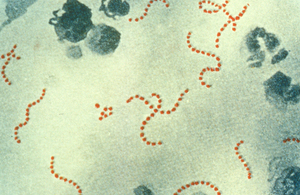Update on rising scarlet fever numbers across England
PHE have published the latest figures on scarlet fever which continues to rise in England.

Public Health England (PHE) has reported a continued significant increase in scarlet fever notifications across England with 883 new cases reported from 24 to 30 March: the highest weekly total across all weekly records available since 1982.
A total of 5,012 new cases have now been reported since the season began in September 2013, compared to an average of 1,650 cases reported for the same period in the previous 10 years.
The increases in scarlet fever have been seen across the UK. Whilst most cases of scarlet fever are mild and will resolve within a week, continued vigilance by healthcare professionals remains essential due to uncommon but possible complications.
Dr Theresa Lamagni, PHE’s head of streptococcal infection surveillance, said:
We are continuing to see increases in scarlet fever notifications across England and are working closely with healthcare professionals to try and understand the reasons behind these increases and do our best to reduce the impact of this infection.
PHE urges people with symptoms of scarlet fever, which include a sore throat, headache and fever accompanied by a characteristic rash, to consult their GP. Scarlet fever should be treated with antibiotics to reduce risk of complications.
Once children or adults are diagnosed with scarlet fever we strongly advise them to stay at home until at least 24 hours after the start of antibiotic treatment to avoid passing on the infection.
Scarlet fever is mainly a childhood disease and is most common between the ages of 2 and 8 years. It was once a very dangerous infection but has now become much less serious. There is currently no vaccine for scarlet fever.
Notes to editors
- Read the latest health protection report
- Patient information is available from the NHS Choices website and PHE’s Frequently Asked Questions
- Further information for health professionals
- Public Health England’s mission is to protect and improve the nation’s health and to address inequalities through working with national and local government, the NHS, industry and the voluntary and community sector. PHE is an operationally autonomous executive agency of the Department of Health.www.gov.uk/phe Follow us on Twitter @PHE_uk
UKHSA press office: National Infection Service
UKHSA press office, infectious diseases
61 Colindale Avenue
London
NW9 5EQ